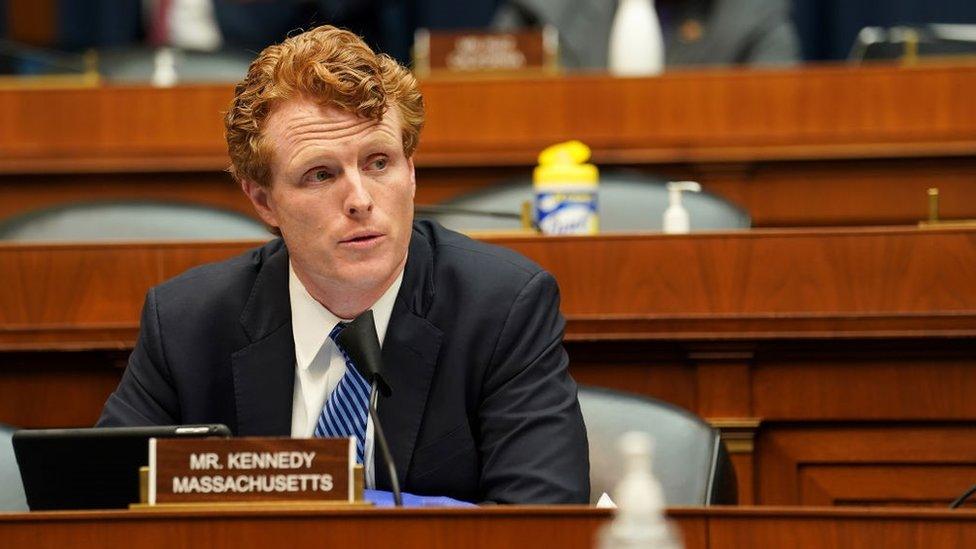US delegate trip sees $50m investment for NI
- Published
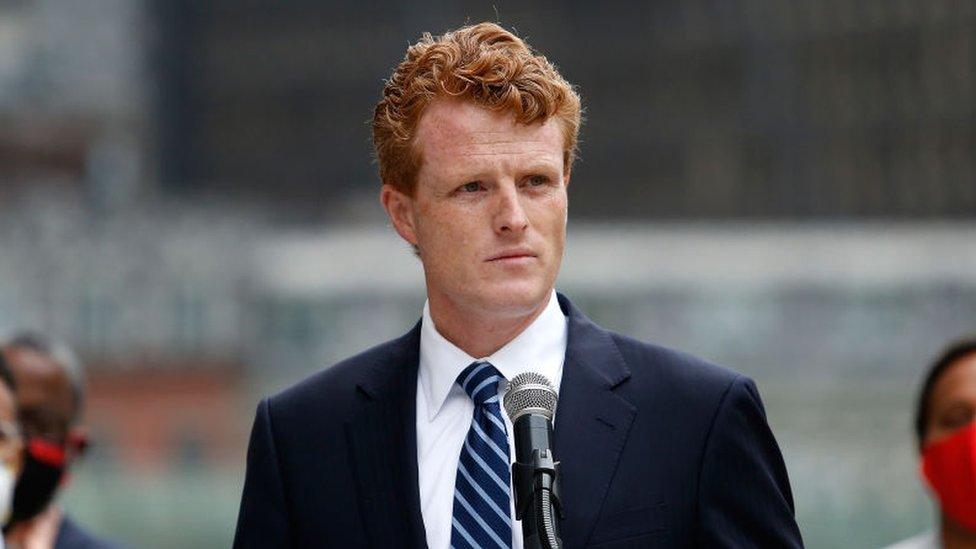
Joe Kennedy III focuses on Northern Ireland's economic and investment opportunities in his role
The New York State pension fund is to invest up to $50m (£41m) in Northern Ireland businesses.
The fund's comptroller Tom DiNapoli made the announcement as part of a US investment mission to Northern Ireland.
The investment will be made indirectly via an allocation to private equity funds.
The pension fund has previously invested in Northern Ireland in this way.
The announcement came on the first day of a delegation of business people led by the United States Special Envoy Joe Kennedy III.
US President Joe Biden promised the delegation when he visited Northern Ireland earlier this year.
He said "scores" of US firms wanted to come to Northern Ireland; some already employing over 30,000 people, external.
The delegation is a blend of US companies already present in Northern Ireland and potential investors.
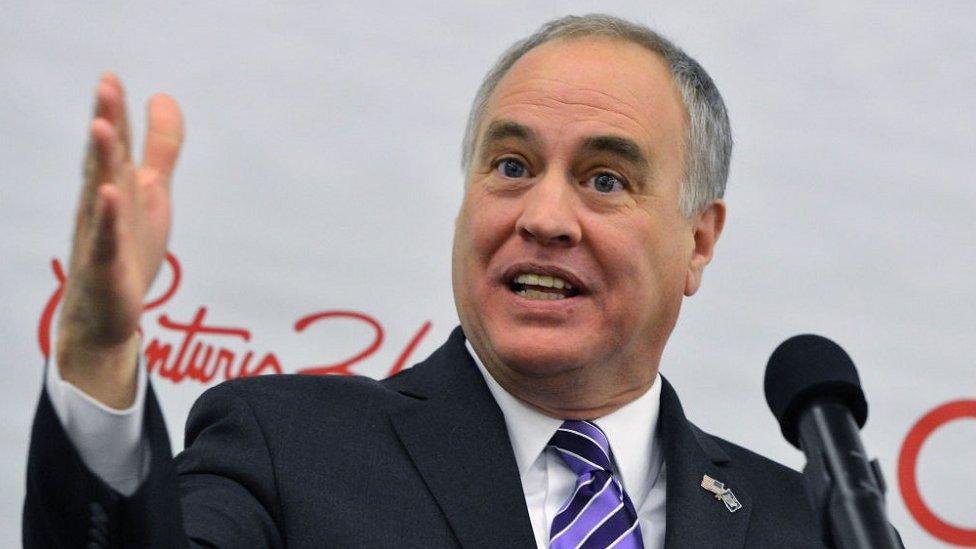
The investment was announced by New York State pension fund comptroller Tom DiNapoli
Mr DiNapoli told the BBC the fund's interest in Northern Ireland stretches back to a meeting with the late first and deputy first ministers Ian Paisley and Martin McGuinness.
"They said 'we're coming together to put the past behind us and we're looking for opportunities to grow the economy and we'd love New York State through its pension fund to be part of that'.''
The size of deals on offer in Northern Ireland would be too small for the pension fund to invest directly.
Therefore it provides capital to an external fund manager who sources the deals, does the due diligence and makes the investment decisions.
Mr DiNapoli said that when the fund first invested in NI he hoped that other US pension funds would follow.
"That hasn't quite happened but I think there's the opportunity now given that we've been doing it and doing it successfully.
"I hope with this renewed effort under Joe Kennedy and President Biden folks will pull me aside and ask 'has it really been working for you?' and I can say it has."
Who are the delegates?
It is understood this week's delegation includes representatives from other investment funds, including the California state pension fund.
The delegates include Tim Sweeney, the chief executive of Liberty Mutual Insurance, which has a major IT operation in Northern Ireland, as well as a local insurance business.
Also present will be John Murphy, the president and chief financial officer of Coca-Cola.
On Tuesday, the bottling plant Coca-Cola HBC, based near Lisburn, launched a new canning line which has created 35 jobs as part of a £17m expansion.
Mr Kennedy suggested the trip would be a learning experience for some delegates who had not previously considered Northern Ireland.
"They will learn about Northern Ireland's highly skilled and motivated talent pool, driven by its world-class universities and colleges," he added.
In the absence of devolved ministers the delegation will be hosted by the head of the Northern Ireland Civil Service, Jayne Brady.
She said there had been a "collaborative effort between business, academia and government" to showcase key elements of the region as an investment proposition.
"We will be providing curated sessions across Northern Ireland to highlight sectors, where we already compete globally, including advanced manufacturing and net zero, software and fintech, life and health sciences and the creative industries," Ms Brady added.
Strong jobs market 'may be weakening'
Meanwhile, new figures show the unemployment rate in Northern Ireland has returned to its record low but other measures suggest the job market may be weakening.
The unemployment rate of 2.3% in June-August equalled the low point recorded in the autumn of 2019.
However, the monthly measurement of how many people are claiming unemployment benefits rose in September.
There were just under 38,000 claimants, the highest number since February 2022.

The NI unemployment rate in June-August equalled the low point recorded in the autumn of 2019
Official data also show the total number of weekly hours worked in Northern Ireland between June and August was estimated at 27.7m, a decrease of 3.1% on the previous quarter.
A falling number of hours worked can suggest employers are taking measures such as cutting back on overtime.
The publication of these labour market figures had been delayed because the Office of National Statistics had been concerned about the falling response rate to its Labour Force Survey (LFS) in Great Britain.
It has published what amounts to an adjusted version of the LFS for Great Britain.
Response rates to the survey in Northern Ireland have been much better so the NI Statistics and Research Agency has published unadjusted figures.
Related topics
- Published13 September 2023
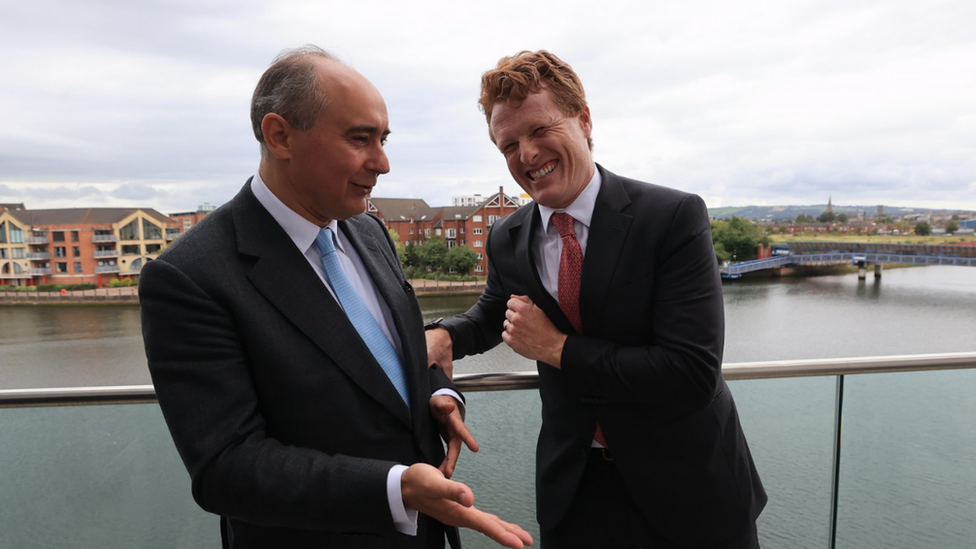
- Published12 April 2023

- Published15 March 2023
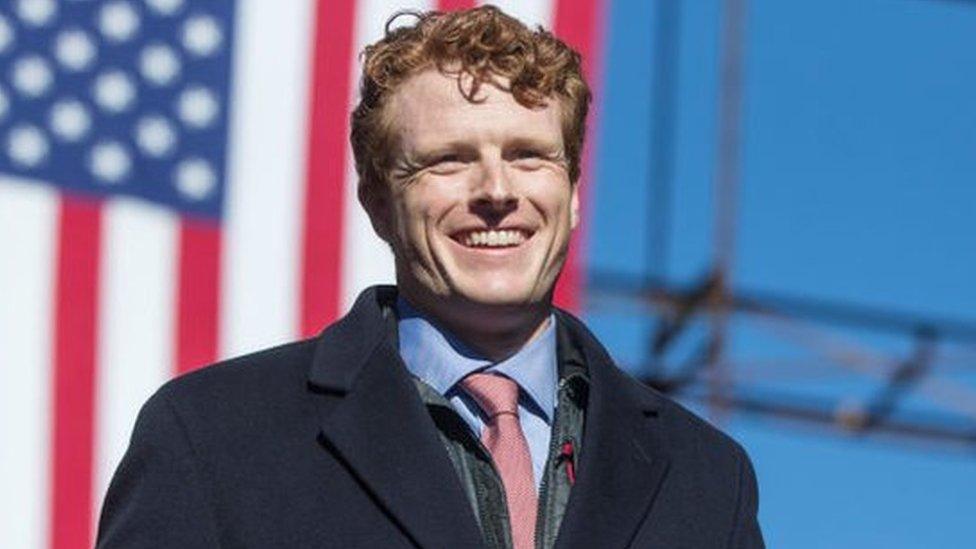
- Published19 December 2022
